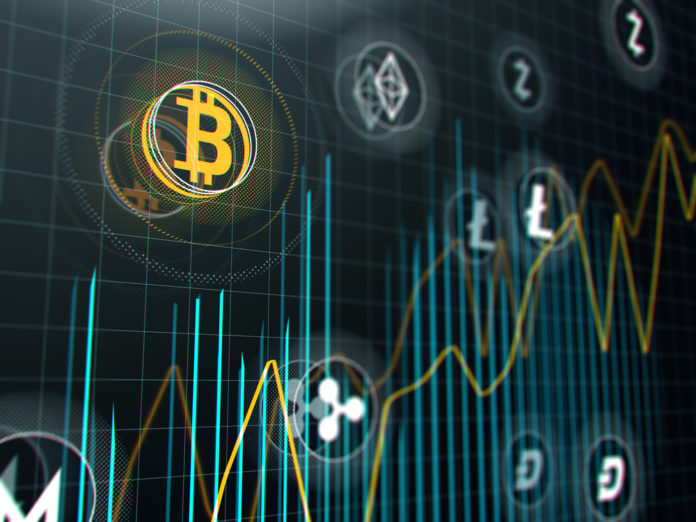

With the introduction of cryptocurrency exchanges and blockchain technology 10 years ago, we also got introduced to a concept of functioning decentralization. Naturally, such an idea has been around for a while, but we never managed to get so close to it as we did once the blockchain technology emerged.
As a result, it allowed us to eliminate the middleman, and cryptos did the same when it comes to making direct payments and transactions. However, when it comes to crypto trading, exchanges became a necessity, and they are the only aspect that is still highly centralized. As a result, decentralized exchanges emerged as a way of correcting this and resolving the issue.
Centralized exchanges are not acceptable for the future of crypto trading for several reasons. Hacking, fee manipulation, token listing charges, and similar things are too bank-like for most crypto users to feel comfortable.
At first, centralized exchanges were tolerated. They were still considered a new concept, and many believed that some level of centralization might serve as a good anchor for the crypto world. An increase in hacking attacks that followed quickly proved that this was not the best idea and that the time has come for exchanges to become decentralized as well. This is how DEXes came to be.
How are Decentralized exchanges better?
According to experts, decentralized exchanges are much more practical when it comes to trading larger volumes. They are much more secure, and so far, hackers have never been a problem for any DEX. Considering that there are no centralized servers that can be hacked, all the information is safe.
Next, a lot of centralized exchanges are criticized for charging large fees, especially when it comes to the token listing. This is simply not a problem for DEXes since they have no centralized authority that would have to pay for servers and alike. That way, assets can be listed without spending large amounts of money on the process itself, and projects that are being listed have a much better chance at growing and developing further.
Finally, there is the matter of increased fungibility. Simply put, fungibility is described as the ability to trace cryptos. Some cryptos, such as Bitcoin, can easily be traced and see who was a previous owner of the coins you now possess. This is especially important due to the fact that BTC was used for notorious and downright illegal activities. Legitimate, law-abiding users do not wish to be connected to such activities, which is why to always know where your coin came from, and what kind of history does it have.
Disadvantages of DEXes
One of the biggest disadvantages of DEXes is that they are not exactly as user-friendly as centralized cryptocurrency exchanges. Cryptos are still new and largely unknown, despite all the attention that they received in the last two years. In centralized exchanges, even new users can easily find their way around and enter trading, while DEXes are simply too complex for most beginners. It is easy to get confused and lost with all the activity, which can discourage people from entering the crypto space in general.
Another big issue is their transaction speed. Speeds are not great on DEXes, which can be frustrating and costly since all validation needs to be done on the blockchain. Centralized exchanges have a central authority that takes care of this, which is why transactions can occur quickly and without issue there.
The third big problem is that some DEXes can be a bit expensive. Some of them use gas, which means that block confirmations can be costly. Considering that reducing the costs is one of the biggest reasons why people decide to enter the crypto world in the first place, this might be a deal breaker for a lot of newcomers.
Finally, there are several DEXes which have been working on improving speed and reducing costs by using smart contracts for transaction validating. However, to make this work, they had to introduce some centralized features. This is confusing to a lot of investors, as they for true decentralization, but they also want a cheap, fast, and good service.
Considering that DEXes are still new, issues that are currently troubling them will certainly be resolved in the future. However, for now, they are still present, which is why decentralized exchanges have as many issues as they have benefits and advantages. Still, as this technology grows and develops, DEXes will likely become dominant, while centralized exchanges will have a hard time keeping up. The same will be true when it comes to banks, and experts believe that more and more users will seek true decentralization in every aspect of the financial industry.
For real-time trade alerts and a daily breakdown of the crypto markets, sign up for Elite membership!
Disclaimer: This article should not be taken as, and is not intended to provide, investment advice. Global Coin Report and/or its affiliates, employees, writers, and subcontractors are cryptocurrency investors and from time to time may or may not have holdings in some of the coins or tokens they cover. Please conduct your own thorough research before investing in any cryptocurrency and read our full disclaimer.
Image courtesy of Pexels
The post Future of Decentralized Cryptocurrency Exchanges appeared first on Global Coin Report.
Read more at https://globalcoinreport.com/future-of-decentralized-cryptocurrency-exchanges/

Globalcoinreport.com/ is author of this content, TheBitcoinNews.com is is not responsible for the content of external sites.
Our Social Networks: Facebook Instagram Pinterest Reddit Telegram Twitter Youtube











